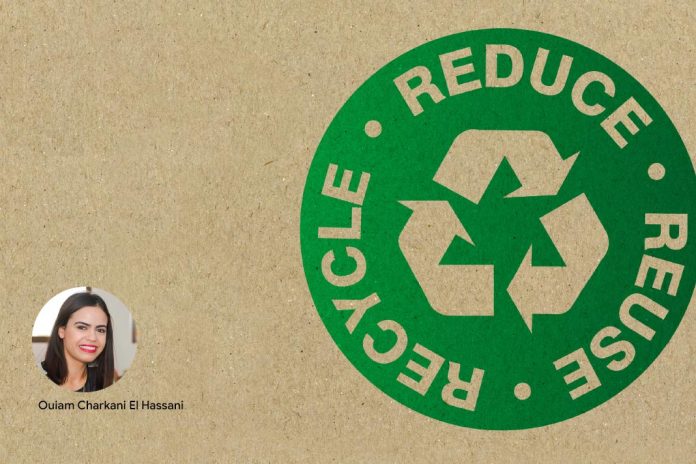Ouiam Charkani El Hassani on the whys and hows of living sustainably
What exactly does it mean to live sustainably? In a nutshell, a sustainable lifestyle is one that incorporates eco-friendly principles and practices to reduce your use of natural resources. Sustainability not only means using less, but also replacing what you use whenever possible. We can think of sustainability as a way to get back to basics and honour nature; you may find it extremely gratifying to transition to an eco-friendly lifestyle.
The question is:
“Why choose to live sustainably?”
Well, let’s start by saying that there is NO planet B! We are stuck with this one, and by the way things are going, it doesn’t look good.
Climate change, ozone deterioration, acid rain and the dead zones in the oceans are just a few of the indications that our planet is dying. Land and water pollution are a major problem. The world generates at least 3.5 million tons of plastic and other solid waste a day, which is 10 times the amount of a century ago, according to World Bank research.
Most countries don’t have any special treatment for waste, so it ends up in landfills or the oceans. Even incineration, that is considered to be sustainable as it produces energy, causes air pollution due to the gasses.
From an energy point of view, people have already used a huge amount of non-renewable resources. As the years pass and humans live longer, more of these resources are needed, which will, of course, finally be depleted.
Overconsumption is something that almost everyone is guilty of. We live in a world where every day there is something new, something enticing, something that will make our life easier, and we often feel forced to buy it.
We buy clothes that we don’t wear, food that we end up throwing out. We never think of where these things come from. Those clothes, who makes them? How are the labourers’ living conditions? And where will these clothes end up, even if we give them to charity?
The biggest enemy here is plastic! Plastic products are everywhere. We use them every day in our homes, schools, offices and during our travels. Our modern world has become so dependent on the convenience of mass-produced, readily available plastic products — like disposable bags, bottles and cups — that it’s surprising to consider that the world was once plastic-free.
In just a single generation (roughly from 1940 to the present), our overwhelming reliance on plastics has created environmental problems such as crowded landfills, groundwater contamination and ocean debris that future generations will still be cleaning up.
I am sure you have heard of the famous 3 Rs: reduce, reuse, and recycle, but have you ever considered implementing them in your own life? There is a reason that these three Rs have stuck around in the eco-friendly vernacular. They are simple and anyone can incorporate them into their lives.
Before you get overwhelmed with all the above, let me tell you, you can start with really simple and small steps, that won’t cost you a penny. In fact, I bet it will make you feel good about yourself, knowing that you have done something to save the planet.
Here are few tips:
1. Limit/ reduce the single-use plastic items in your life. Start with reusable shopping bags. Switch from plastic water bottles, to reusable ones, that can be refilled. Stop using plastic/paper cups for drinks, simply use the shop’s cups, or bring your own. Use bamboo or metal straws, or just simply use none.
2. Buy less, take care of what you already have so it lasts you longer, and only buy what you really need.
3. Educate yourself. Learn as much as you can about the obstacles facing our environment today. Pay attention to the little choices. Change your light bulbs and use your air conditioner wisely. These are energy suckers!
Choose to make the smallest carbon footprint possible, and you’re making a choice to live a greener life. Every choice we make impacts others: other people, other animals and other environments.
Chanelmama


































